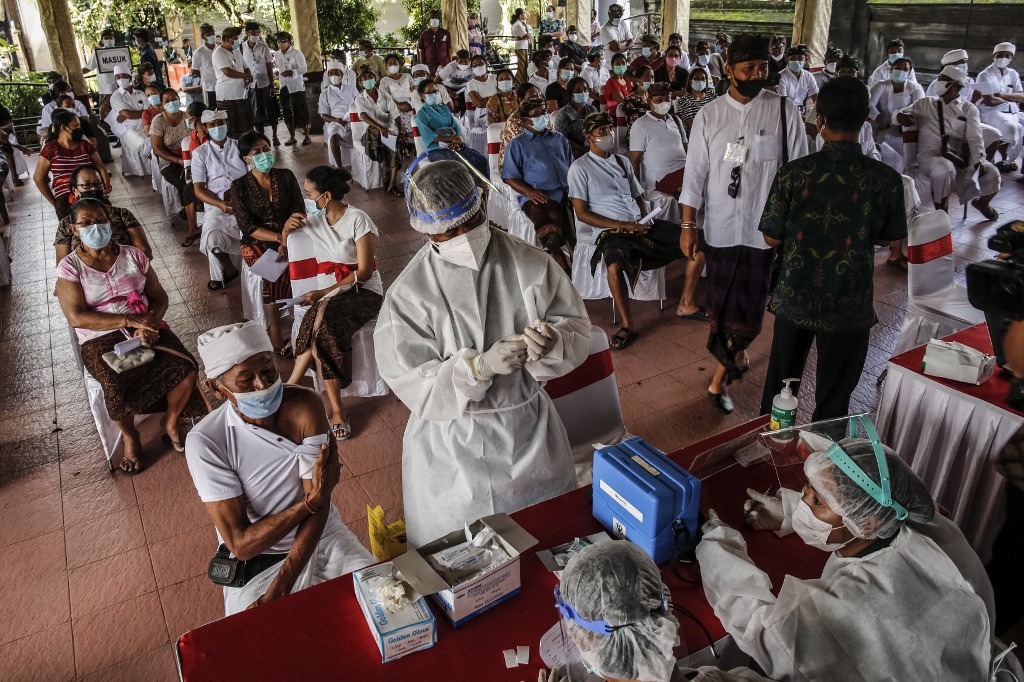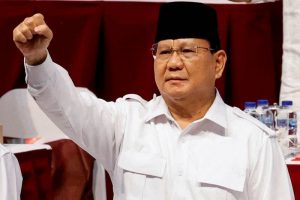Two doses of the Chinese-made Sinovac Covid-19 vaccine offer “inadequate” protection against the Omicron variant of the coronavirus, researchers in Hong Kong have said in a new study.
The study tested the antibody levels of 25 recipients of Sinovac’s CoronaVac vaccine and found that none had sufficient antibodies to neutralise the Omicron variant.
That compared with five found to have sufficient antibodies out of 25 recipients of the BioNTech/Pfizer vaccine, which the researchers from the University of Hong Kong said had an efficiency of 20-24% against the new variant.
The results convinced the researchers that people should get a third dose of Covid-19 vaccines as soon as possible.
‘Get A Third Dose’
“The public is advised to get a third dose of the vaccine as soon as possible while waiting for the next generation of a more matched vaccine,” the researchers said in a news release.
The study, funded by the Hong Kong government, was carried out by microbiologists Yuen Kwok-yung, Kelvin To and Chen Honglin.
Sinovac did not immediately respond to questions on the study, but a spokesperson said its own laboratory testing showed a third dose of its vaccine was effective in producing Omicron antibodies.
The results of the study have been accepted for publication in the medical journal Clinical Infectious Diseases. A preprint is available.
“In this study, we demonstrated that both Omicron variants have reduced susceptibility to neutralisation by sera collected from Covid-19 vaccine recipients,” the authors wrote.
“None of the CoronaVac recipients had detectable neutralising antibody to the Omicron variants,” the researchers said.
A level of antibodies sufficient to neutralise the virus is closely related with the ability to prevent symptomatic infection, the researchers added.
The findings will add to doubts over the efficacy of Chinese jabs, as well as the government’s costs for managing the pandemic.
Sanofi, GSK Booster
Meanwhile, Sanofi and GlaxoSmithKline said on Wednesday they expect data from late-stage clinical trials of its booster dose of their Covid vaccine candidate in the first quarter, instead of this year.
The news came as the French and British partners said preliminary data from trials showed the single-dose booster provided strong immune responses.
The companies said they need more time to test the booster on more people who have not been infected by the virus before they can submit data to regulators.
The Phase III trial for the recombinant adjuvanted COVID-19 vaccine recruited most participants in the third quarter, coinciding with a significant increase in the number of people infected globally due to the Delta variant, it said.
“To provide the necessary data to regulatory authorities for the booster vaccine submission, the trial will continue to accrue the number of events needed for analysis, with results expected in Q1, 2022.”
The protein-based vaccine uses the same technology as one of Sanofi’s seasonal influenza vaccines coupled with an adjuvant, a substance that acts as a booster to the shot, made by GSK.
At the end of September, Sanofi dropped its plans for its own mRNA-based Covid-19 vaccine because of the dominance achieved by BioNTech-Pfizer and Moderna in using the technology to fight the pandemic.
‘Well tolerated’
“The booster was well tolerated, with a safety profile similar to currently approved Covid-19 vaccines. This is the most comprehensive booster trial to date to explore boosting across different vaccine technologies used for primary vaccination”, the companies said in a statement.
The booster shot has been tested for all age groups and for people who have received four of the most widely approved shots – AstraZeneca, Johnson & Johnson, Moderna and Pfizer/BioNTech – as part of their primary vaccine.
It was administered between four and ten months after a complete primary vaccination schedule. The Omicron variant was not circulating during the trial.
“Preliminary results from the VAT0002 clinical trial investigating the safety and immunogenicity of the booster showed neutralizing antibodies increased nine to 43-fold regardless of the primary vaccine received (AstraZeneca, Johnson & Johnson, Moderna, Pfizer/BioNTech) and for all age groups tested”, Sanofi said.
- George Russell and Reuters
This report was updated on December 15.
SEE MORE:
Hong Kong Approves Sinovac Vaccine For Children Aged 3-17
UK Greenlights Chinese Covid-19 Jabs: Xinhua
Chinese media launch negative attacks on foreign vaccines
























